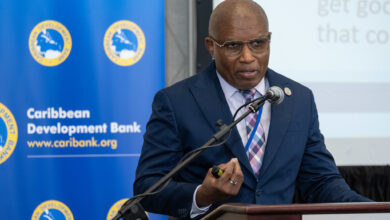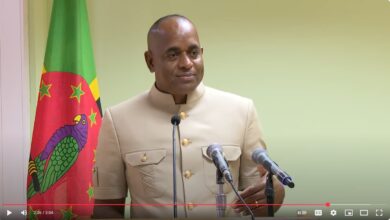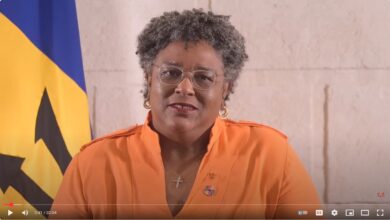(CARICOM Secretariat, Turkeyen, Greater Georgetown, Guyana) The second CARICOM Regional Workshop on Demographic Analysis which ended on 17 August 2007 at the University of the West Indies (UWI) St. Augustine Campus, has started a process to focus attention on the people of the Caribbean Community; the real engine that will drive development in the Region, Deputy Secretary General of CARICOM, Ambassador Lolita Applewhaite said.
Twenty-two participants, from countries throughout the Region, received certificates at the formal closing ceremony.
The Workshop, which began on 2 July 2007, was a component of a CARICOM/Caribbean Development Bank project to strengthen the Region’s capacity in Demographic Analysis. It was one of three workshops in the multi-year programme of training.
In remarks delivered by Dr Philomen Harrison, Programme Manager, Statistics, CARICOM Secretariat, the Deputy Secretary General noted that enabling the capabilities to conduct demographic analysis would assist in solving some of the complex challenges in the assessment of social and environmental issues.
Demographic analysis, Ambassador Applewhaite said, contributed to the wider area of population studies and the diagnosis of population dynamics in areas such as anthropology, biology, economics, political science, history and sociology.
“Population growth as well as fertility, mortality and migration have economic, social and environmental impacts. These are areas in which critical analyses have to be undertaken if the Community is to be provided with the tools to enable the successful operation of the CARICOM Single Market and Economy. They will also assist in the achievement of the United Nations Millennium Development Goals (MDGs) and in enabling the benchmarking of poverty and other related social issues,” she said.
The Deputy Secretary General emphasized the importance of having social statisticians at the disposal of the Community, and pointed out that in the milieu of functional cooperation, which was now at the centre of the integration process, statistics for areas including health, education, labour and gender become a critical element in planning and development.
It is anticipated that at the end of the multi-year programme, statistical institutions would have acquired the capacities to provide the data required for policy planning and decision-making.
Among the other benefits of the programme are: the promotion of good governance through the support of the creation of a modern, effective and accountable public sector capable of delivering valued public services; the implementation of the mandates from the CARICOM Council of Human and Social Development, and other organs, to implement measures to improve the range and quality of statistics in the Region; assist in the Region’s development to analyse available data from censuses and surveys, and inform policy in a wide range of areas.
Mr. Neville Grainger, Vice-President, Finance, Caribbean Development Bank (CDB); Dr. Hamid Ghany, Dean, Faculty of Social Sciences, University of the West Indies and Ms. Shirley Christian-Maharaj, Ag. Director of Statistics, Central Statistical Office, also made remarks at the function.
Among those who attended the function were Ms. Antonia Popplewell, Permanent Secretary, Ministry of Planning and Social Development, Mr. Neil Pierre, Director, UNECLAC, and workshop lecturers, Professor Chukwudum Uche and Dr. Godfrey St. Bernard and Dr. Jimmy Tindigarukayo.





